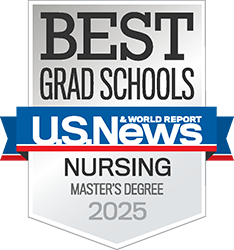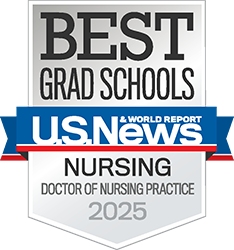Teaching the Essentials Nursing faculty develop case study for AACN toolkit


Nursing students must learn more than facts, they must learn to think critically and make sound clinical decisions. Developing these higher-level competencies is the goal of an unfolding case study developed by a team of community health nursing experts at Cizik School of Nursing at UTHealth Houston.
Barbara Hekel, PhD, MS, MPH, RN, led a group of colleagues who created the teaching tool in response to a request for proposals from the American Association of Colleges of Nursing (AACN) for case studies related to population health and social determinants of health (SDoH). After three years of development, review, and testing, their case study, “John’s Journey: Caring for Vulnerable Populations in the Community,” is available for use by nursing educators across the nation on the AACN website and will be included in the AACN’s Essentials toolkit.
Each faculty member involved brought specialized expertise to the project. The scenario centers on an Army combat veteran living with post-traumatic stress disorder who is the single parent of a daughter with autism. The characters were developed based on faculty members’ experiences with real people.
“We have such amazing faculty here,” said Hekel, an assistant professor in the Department of Graduate Studies. “This was truly a team effort.”
Associate Professor Bridgette Pullis, PhD, RN, CHPN, founded and directs Cizik School of Nursing’s Veterans’ Bachelor of Science in Nursing (BSN) program, and Assistant Professor Allison Edwards, DrPH, MS, BSN, RN, CNE, established disabilities fellowships funded by the Joan and Stanford Alexander Endowment for Intellectual Disabilities. Instructor Juane Alexander, MSN, RN, is herself an Army veteran and recruited family members to serve as models in the case study. Former faculty member Christina DesOrmeaux, PhD, RN, brought expertise in community health nursing.
AACN announced the grant opportunity in 2019, shortly after the National Council of State Boards of Nursing announced that the National Council Licensure Examination (NCLEX®) would undergo an update and format change to include scenario-based questions to assess students’ clinical judgment and decision making. BSN students graduating in May 2023 will be the first Cizik School of Nursing cohort to take the new version of the NCLEX. The UTHealth Houston team’s proposal was one of only two selected nationally for the AACN grant, with Rutgers University School of Nursing receiving the other one.
The team spent hours in a conference room selecting their topic, defining objectives, and outlining their characters’ story, with each faculty member writing sections of the case study and accompany facilitators guide that dealt with their area of expertise. They had lined up a production crew and actors to produce videos that would have been imbedded into the case study, and Edwards was writing scripts when COVID-19 foiled that part of their plans.
The group pivoted and forged ahead, creating an interactive PowerPoint deck that follows the life of “John Miller” as he experiences a work-related amputation, homelessness, and substance use. Students also assess the health needs of his daughter, Sophie, and Aunt Clara, who takes the small family in. As each chapter of John’s life unfolds, students learn about and explore important concepts related to SDoH, the resources available to struggling families, and the common difficulties in accessing health care and support.
The team tested models for teaching the case study with different cohorts of third-semester BSN students across three consecutive semesters beginning in Fall 2020. Delivered as part of a synchronous, online community health nursing didactic course, students interacted most when they worked in teams to explore problems raised in specific slides and presented their assessments and answers to the class.
“We get near 100% participation in those class sessions because the students have something they have to do,” Hekel said. “The experience also provides students with the opportunity to practice their speaking and presentation skills.”
Faculty compared the cohorts’ scores on the community health HESI exam and found them to be above the national average and slightly better than scores from the previous year. Their initial results were published in December 2022 in the journal Nurse Educator.
AACN also put the case study through rigorous review and testing. Optional supplemental assignments were added based on input from outside reviewers, and AACN put out a call in January 2022 for other universities to pilot the case study. Successful results led the AACN to post the case study on its website prior to publication of final results, Hekel noted.
The 85-page slide deck and 74-page facilitators guide cover a variety of topics related to population health and SDoH. Educators may choose to present the entire case study or individual parts.
“Everyone who uses the case study can present it however they want,” Hekel said. “It might be used in a clinical or a classroom setting.”
The team later built on their work by developing a vaccine hesitancy simulation with the characters of John, his daughter Sophie, and Aunt Clara played by standardized patients. Students go through the case study early in the semester and then meet John and his family in the simulation lab a few weeks later.
The team continually tweaks how the case study is presented and used, Hekel said. Who knows when John might show up again in the community health nursing curriculum?
(Banner image): Students interact with a standardized patient portraying the character John Miller in a vaccine hesitancy simulation that grew out an unfolding case study that will be included in the AACN Essentials Toolkit.
Sherri Deatherage Green



